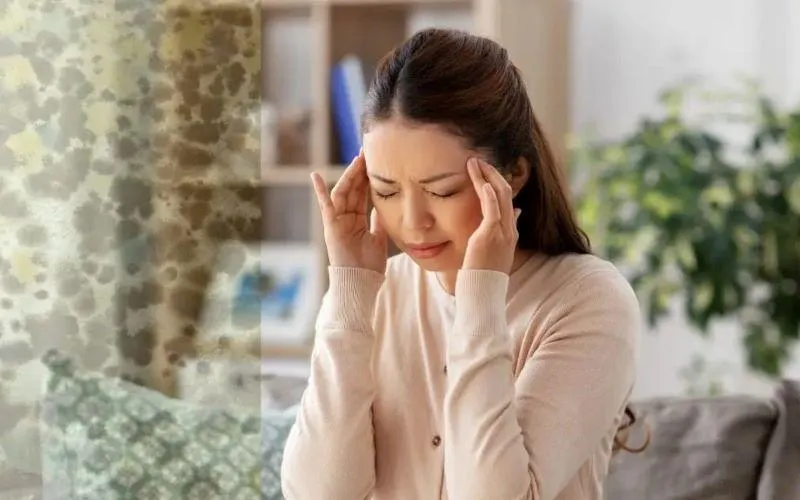Welcome to Our Blog
Insights and tips to keep your living environment safe and healthy.

Health Risks of Mold Exposure
At Advanced Clean Air Solutions, we prioritize the health and safety of our clients. Mold is a silent invader that can pose serious health risks if not addressed promptly. Knowing these risks is very important for keeping your home healthy. Here we’ll talk about the health problems associated with mold exposure, shedding light on why timely mold inspection and remediation are crucial.

What is Mold?
Mold likes to grow in places that are wet and don't get much sunlight. Mold can grow almost anywhere inside your house, on walls, ceilings, floors, and even furniture. Mold spreads through small spores that float through the air, making it difficult to eliminate without professional help.
Common Types of Mold Found Indoors
While there are thousands of mold species, a few are commonly found indoors:
Stachybotrys chartarum: Also known as black mold, it produces mycotoxins that can be particularly harmful.
Aspergillus: Often found in damp or water-damaged buildings, it can cause allergic reactions and respiratory issues.
Cladosporium: This mold can grow in both warm and cool areas and is typically found on fabrics, wood, and carpets.
Penicillium (blue/green): Common mold found on food, wallpaper, and fabrics. While some types produce penicillin, others trigger allergies and breathing issues.
Health Risks of Mold Exposure
Exposure to mold can lead to a range of health problems, varying from mild to severe. The effects depend on the type of mold, the duration of exposure, and an individual's sensitivity or underlying health conditions.
1. Respiratory Issues
Inhaling mold spores can cause respiratory problems, especially in individuals with pre-existing conditions such as asthma or chronic obstructive pulmonary disease (COPD). Symptoms can include:
Coughing
Wheezing
Shortness of breath
Chest tightness
2. Allergic Reactions
Many people are allergic to mold spores. These allergic reactions can manifest as:
Sneezing
Runny or stuffy nose
Itchy, watery eyes
Skin rashes
3. Asthma Attacks
Mold can trigger asthma attacks in those who suffer from this condition. Asthma sufferers might experience:
Increased frequency and severity of attacks
Greater reliance on inhalers or other medication
Difficulty controlling symptoms even with medication
4. Infections
Certain molds, such as Aspergillus, can cause infections, particularly in individuals with weakened immune systems. Aspergillosis is a condition that can range from mild to severe, potentially causing lung infections and other serious health issues.
5. Toxic Effects
Some molds produce mycotoxins, which can have toxic effects when inhaled, ingested, or touched. Black mold (Stachybotrys) is notorious for producing mycotoxins that can cause severe health problems, including:
Neurological issues such as headaches, memory loss, and mood changes
Fatigue and general malaise
Immune system suppression, making it easier to get sick
6. Mental Health Impacts
Exposure to mold can also affect mental health. Studies have shown a correlation between mold exposure and depression or anxiety. Symptoms may include:
Mood swings
Difficulty concentrating
Increased anxiety or depression
Vulnerable Populations
Certain groups are more vulnerable to the health effects of mold exposure, including:
Infants and children: Their developing respiratory systems make them more susceptible to respiratory issues and allergies.
Elderly individuals: Age-related changes in immune function can increase susceptibility to mold-related illnesses.
Individuals with weakened immune systems: Those undergoing treatments such as chemotherapy, or with conditions like HIV/AIDS, are at higher risk of infections.
People with pre-existing respiratory conditions: Asthma, COPD, and other respiratory issues can be exacerbated by mold exposure.
Beyond the Common: Less Frequent Health Concerns
Some studies have shown that living with mold for a long time might be connected to more serious health problems. These potential health concerns include:
Central nervous system problems: Headaches, fatigue, memory problems, and difficulty concentrating have been reported in some cases of chronic mold exposure.
Skin problems: Mold exposure can irritate the skin, causing rashes and dermatitis.
Developmental problems in children: There is limited evidence suggesting a possible link between prenatal mold exposure and developmental problems in children.
Preventing Mold Growth
Prevention is key to avoiding the health risks associated with mold. Here are some steps to keep your home mold-free:
Control humidity levels: Keep indoor humidity below 60%. Use dehumidifiers in damp areas such as basements, crawl spaces, and bathrooms.
Fix leaks promptly: This is essential. Repair any leaks in roofs, walls, or plumbing to prevent moisture buildup.
Ventilate properly: Ensure sufficient ventilation in areas prone to moisture, such as bathrooms and kitchens. Use exhaust fans when cooking or showering.
Clean and dry thoroughly: Clean and dry any water-damaged areas within 24-48 hours to prevent mold growth.
Use mold-resistant products: In damp places like bathrooms and kitchens, use special materials that resist mold growth, like mold-proof drywall, paint, and insulation. However, be aware that some mold species has evolved to evade mold-resistant paint and coatings. Research any products you use to make sure they are effective.
What to Do if You Suspect Mold Growth
If you suspect mold growth in your home, don't attempt to handle it yourself, especially if the affected area is large. Here's what to do:
Contact a professional mold inspector: A qualified inspector can assess the extent of the mold problem and recommend the best course of action.
Consider professional mold remediation: Mold removal requires specialized techniques and equipment to ensure proper removal and prevent spores from spreading. Look for a reputable company with experience in safe and effective mold remediation. We are not a mold remediation company, but we can help you find a company that will be a good fit for your particular situation.
Professional Mold Inspection and Remediation
Despite taking preventive measures, mold can still find its way into your home. At Advanced Clean Air Solutions, we offer professional mold inspection & remediation services to ensure your home is safe and mold-free.
Our services include:
Comprehensive mold inspections: Our trained professionals use state-of-the-art equipment to detect mold even in hidden areas.
Detailed reports: We provide thorough reports outlining the extent of mold contamination & recommended remediation steps.
Effective remediation: If we find mold that needs to be remediated, we can recommend cost-effective and eco-friendly ways to do that. Many mold remediation companies use old, outdated methods that are unnecessarily heavy-handed and just plain cost too much. We recommend proven techniques and high-quality solutions to remove mold & prevent its return.
Preventive advice: Our experts offer guidance on how to prevent future mold growth, helping you maintain a healthy living environment.

Advanced Clean Air Solutions: Your Partners in a Healthy Home
At Advanced Clean Air Solutions, we understand the importance of a healthy indoor environment. Our team of certified professionals utilizes advanced technology & techniques to locate, assess, and safely remove mold growth from your home or business. We prioritize clear communication and keep you informed throughout the process.
Taking Action for Your Health
If you're experiencing health problems you suspect might be linked to mold exposure, consult a healthcare professional for diagnosis and treatment. Also schedule a professional mold inspection to identify any potential mold problems in your home. By taking proactive steps, you can create a healthier and safer environment for yourself and your loved ones.
Copyright @ 2025 - All rights reserved
Advanced Clean Air Solutions, LLC
351 Paseo Nuevo 2nd Floor #1033
SANTA BARBARA, CA 93101

